We have all heard the term “Food Insecurity.” Securing enough food has always been a struggle for man. Through the efforts of many, the problem of food insecurity is slowly being diminished. However, last spring, Plant Insecurity became a new hurdle for many.
When the global pandemic hit, many decided to start gardening. Because of this influx of new gardeners, plant suppliers were not able to meet the demand. I remember how disappointed I was to find out that my favorite tomato, the Juliette, was not available from my normal source. Also, I was disheartened to learn that cucumber plants were in short supply.
Not only were plants in short supply, but so too were many kinds of seeds. The manufacturers of seeds could not meet the need. I have since learned from my study of the situation that it takes 3 to 4 years to increase seed production. I know many who began looking for their favorite seed early this year. Without seeds and plants, the problem of food insecurity can not be attacked.
Since last spring, my father-in-law, who will soon have his 80th birthday, and I have had many conversations about the lack of plants and planting. We have often discussed how his father, and fellow gardeners would not transplant their plants until after May 15th. They had to wait until the threat of the last frost was over. Their livelihood depended on a successful garden. They couldn’t run down to the corner to purchase new plants. They had to raise their own. Plant Insecurity was a vital issue for them.
This is one of the blessings of involvement in Grow Appalachia. As you can see by the pictures attached, plants have been provided for the members of Grow Appalachia in Magoffin County. Not only was assistance with plants provided, but seed was provided too. Through the help of Grow Appalachia, “Plant Insecurity” is less of a concern. Now, to plant them at the right time, and to properly care for them, hoping for a bountiful harvest.

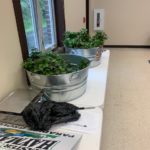
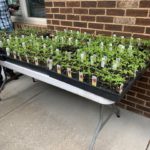
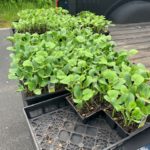
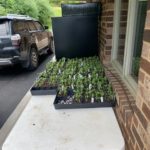
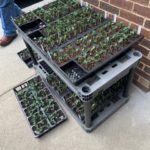

Leave A Comment